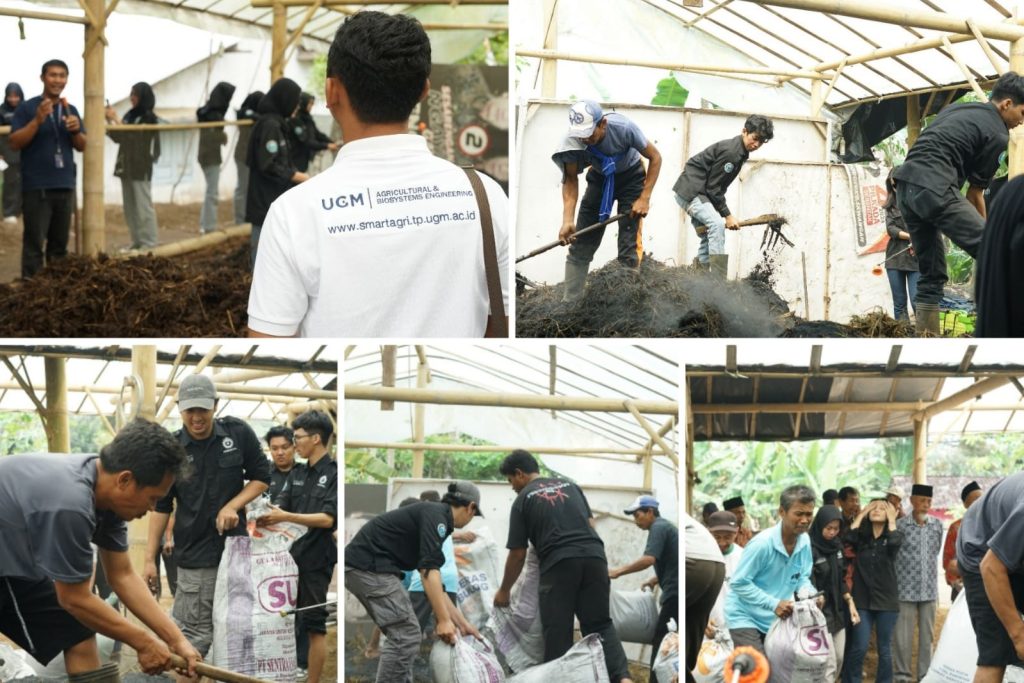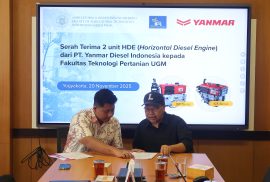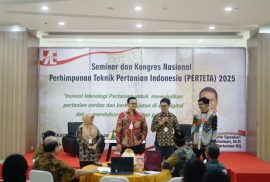
Magelang, August 10, 2025 — The Agricultural Engineering Student Association (PERMATETA) of Universitas Gadjah Mada (UGM) organized the Mblasuk Desa program in Mangunsari Village, Magelang Regency, Central Java. This community service initiative, part of PERMATETA’s Department of Community Engagement, aims to empower local communities in managing livestock waste sustainably through composting. The event was attended by student advisors Dr. Prieskarinda Lestari (Coordinator of Student Affairs) and Ardan Wiratmoko, M.Sc., with keynote speakers Dr. Joko Nugroho Wahyu Karyadi and Dedy Tri Kuncoro.
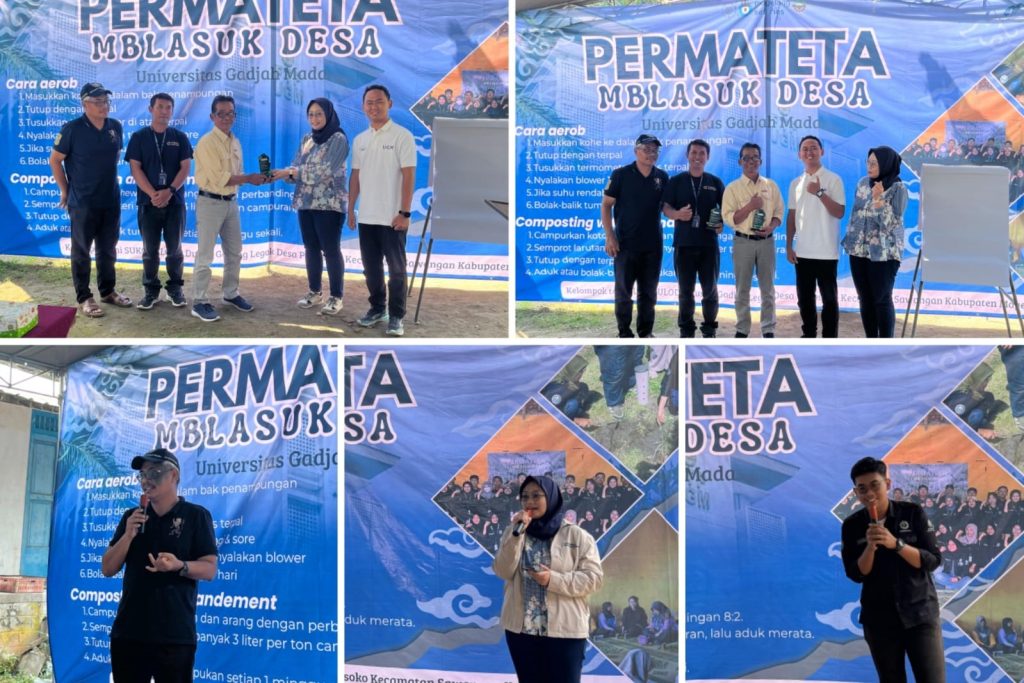
This year’s Mblasuk Desa featured a series of workshops and hands-on training focused on transforming livestock manure into high-value organic fertilizer. Around 30–35 members of the Suko Tulodo Farmers Group actively participated, alongside representatives from Podosoko Livestock Group, Grabag Farmers Group, PKK women’s group, and Magelang Stories.
The first speaker, Dr. Joko Nugroho Wahyu Karyadi, S.T.P., M.Eng., explained in detail the aerated composting technique, which utilizes oxygen supply to accelerate decomposition and produce high-quality compost. Meanwhile, the second speaker, Dedy Tri Kuncoro, introduced composting with amendment—a method that incorporates additional materials to enrich nutrients and improve compost structure.
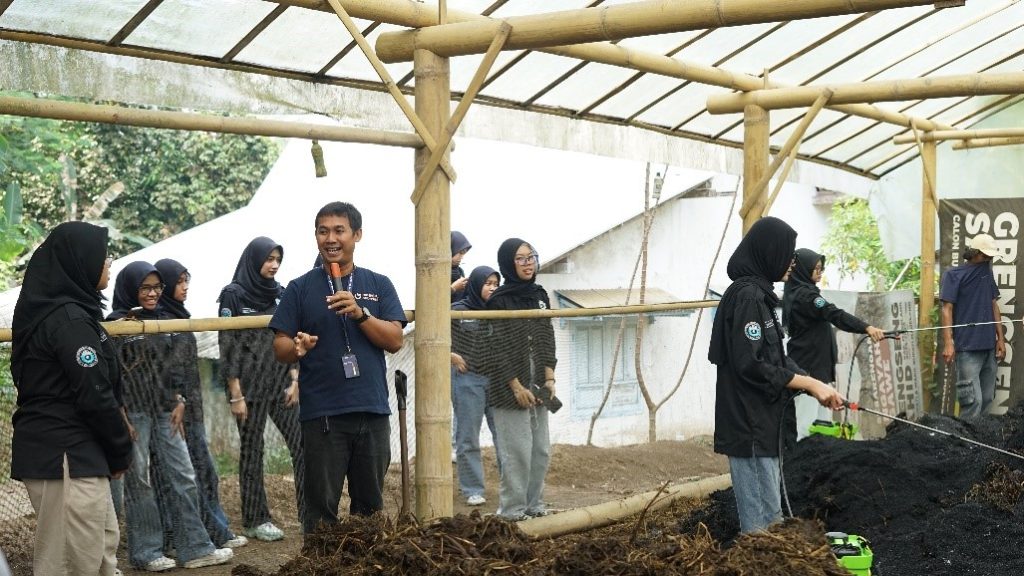
Following the presentations, participants engaged directly in field practice guided by the PERMATETA team, faculty mentors, and both speakers. The training covered the complete technical process, from raw material preparation, moisture control, and compost turning, to final packaging. This experiential learning approach provided farmers with practical skills to independently manage livestock waste as a productive and eco-friendly solution. A 60-day monitoring phase will follow, including regular turning and observation to ensure the composting process runs successfully.
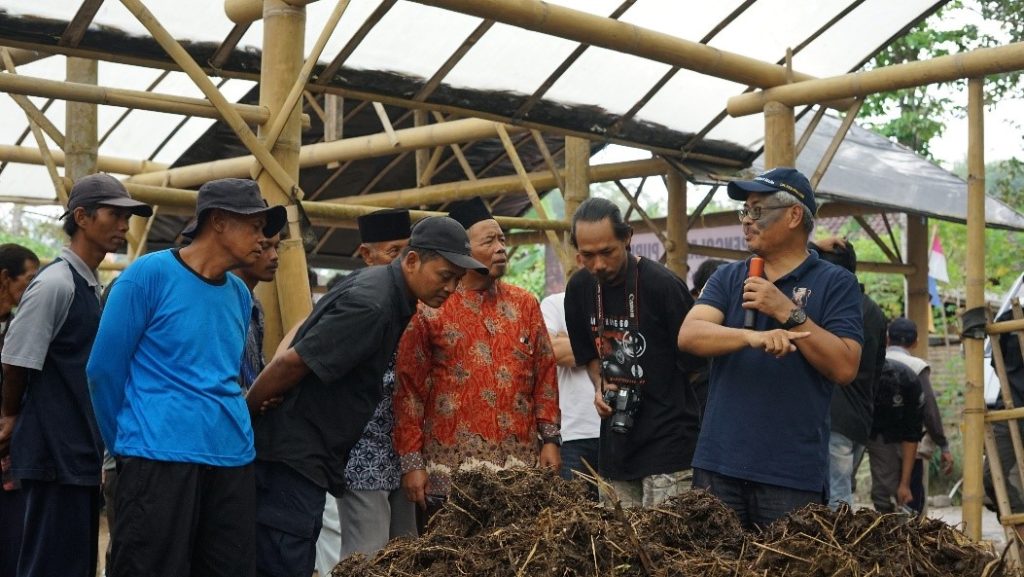
Through this initiative, the community is expected to gain improved capacity in waste management—helping to reduce environmental pollution while generating additional economic value. The program also aligns with UGM’s commitment to advancing the Sustainable Development Goals (SDGs), particularly SDG 12 (Responsible Consumption and Production), SDG 13 (Climate Action), and SDG 15 (Life on Land), by fostering meaningful collaboration between academia and local communities.
